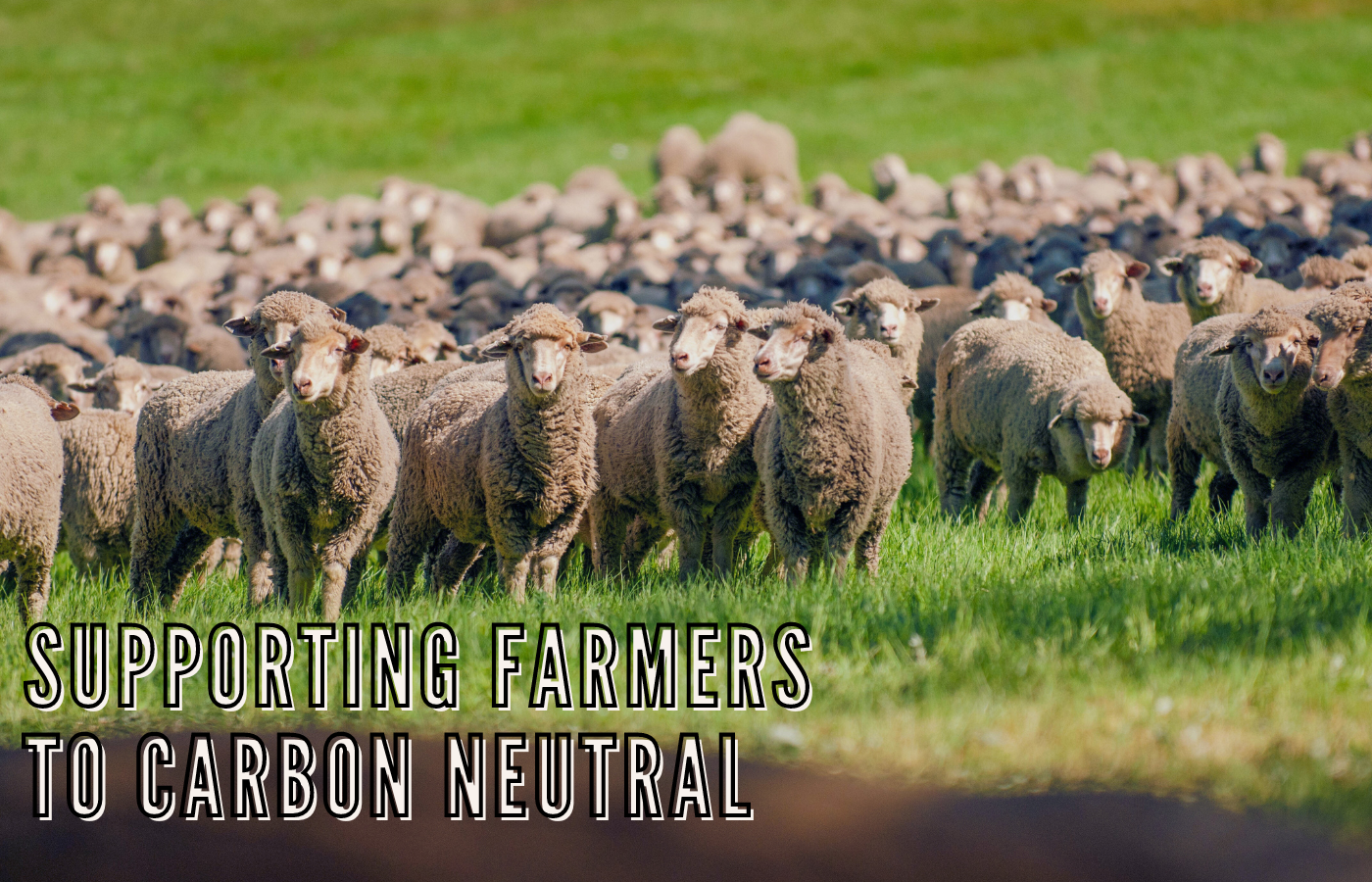From the desk of Suzannah, Adoption Coordinator.
Farming is on the front lines of climate change in Australia – bearing the brunt of droughts, flood and fire, while also contributing to carbon emissions. But farmers also have significant opportunity and keen motivation to help tackle global warming, and parts of the agriculture sector have set goals of achieving carbon neutrality by 2030.
To support farmers in this balancing act, South Coast NRM is collaborating in two key projects with Meat and Livestock Australia (MLA) and Australian Wool Innovation (AWI). These projects aim to understand and communicate the various pathways farmers can take to reduce emissions and increase carbon storage, which will in turn help meet industry goals of carbon neutrality and sustainability.
As part of the Carbon Storage Partnership, South Coast NRM is working with the University of Tasmania and a range of other research organisations to research and then extend regionally specific greenhouse gas emissions (GHG) mitigation practices. The Carbon Storage Partnership is a key investment of Meat and Livestock Australia’s CN30 initiative, which aims to achieve carbon neutrality in the red meat industry by 2030.
A key focus is ensuring that potential pathways to carbon neutrality are not only effective at tackling carbon emissions but are also profitable, environmentally sustainable, and socially acceptable. You can read more about the carbon storage partnership on the MLA website.
South Coast NRM is also supporting the Australian Wool Innovation funded BENEFITS (Biodiversity, Ecosystems, Net Emissions and Forestry ITemiSation of wool farms) project. The BENEFITS project complements the MLA Carbon Storage Partnership by providing a biodiversity and wool industry-specific focus. Both projects take a co-design focus, working with a group of primary producers to model and compare multiple regionally-specific adaptations.
Our role in both projects is to facilitate the extension of information generated by researchers, led by the University of Tasmania, and support adoption of economically and environmentally sustainable approaches. These projects are providing critical research and development, as well as applying and modelling some of the many possible approaches to help support producers as they transition towards carbon neutrality and sustainable meat and wool production.
South Coast NRM is pleased to contribute at a key stage of this process: ensuring the insights developed through these projects have the best opportunity of reaching farmers so they have the best opportunity to adopt new practices that will, in turn, contribute to tackling climate change.
To find out more about South Coast NRMs involvement in carbon neutrality, contact Suzannah Macbeth, Adoption Coordinator (e) suzannahm@southcoastnrm.com.au

